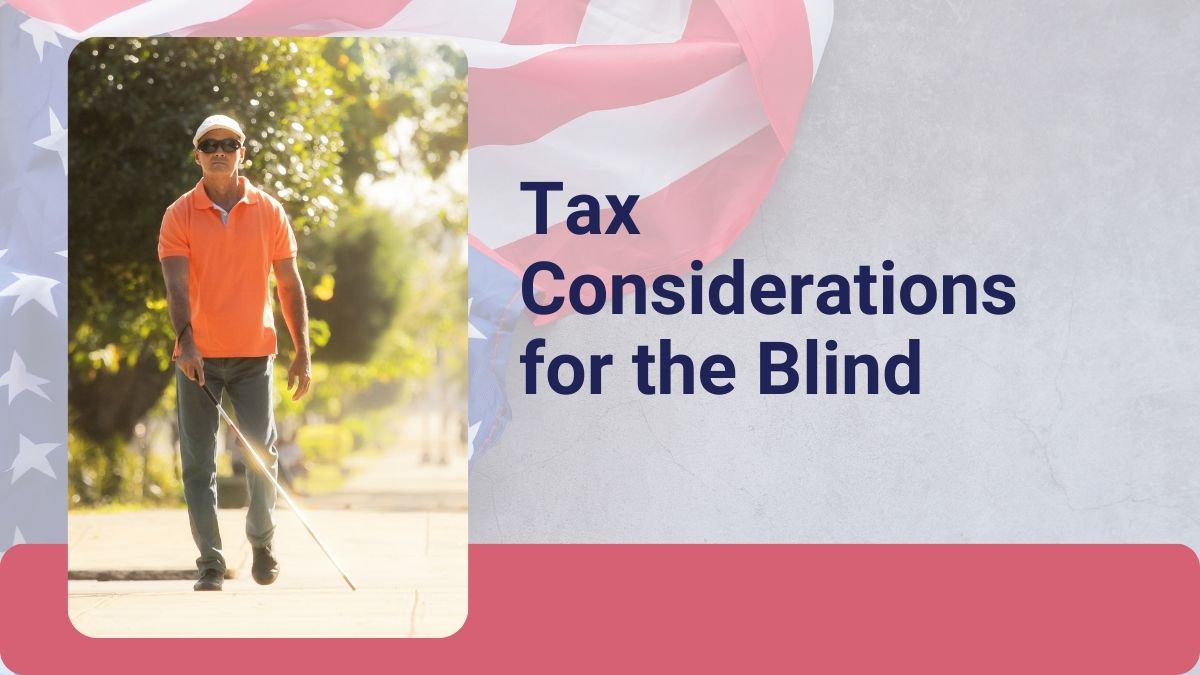Did you know that there are special tax considerations if you are blind?
Tax time is around the corner. You should know that there are special tax considerations if you are blind or have low vision. We answer common tax questions below and provide tools and services to help you or your loved one with a visual impairment fill out your taxes.
Answers to common questions:
Does the IRS consider me blind?
You are considered blind if: You cannot see better than 20/200 in your better eye with glasses or contact lenses, or your field of vision is not more than 20 degrees.
What Do I need to do to file as blind?
If you are blind, check the appropriate box for blind taxpayers, to the left of the Standard Deduction Age Blindness header. Because a blind taxpayer gets an additional deduction in excess of the standard deduction, they must file using form 1040 or 1040 SR.
What is the additional deduction for people who are blind?
If you are legally blind your standard deduction increases by $1,650. If you are Married Filing Jointly and you OR your spouse is 65 or older, your standard deduction increases by $1,300. If BOTH you and your spouse are 65 or older, your standard deduction increases by $2,600. If you itemize you will not receive this increased standard deduction.
Do I need my doctor to provide documentation that I am blind?
What if you aren’t totally blind? Then, you must get a certified statement from an eye doctor (ophthalmologist or optometrist) stating that:
1. You can’t see better than 20/200 in the better eye with glasses or contact lenses, or
2. Your field of vision is 20 degrees or less.
If your eye condition isn’t likely to improve beyond these limits, the statement should include this fact. Keep the statement in your records.
If your vision can be corrected beyond these limits only by contact lenses that you can wear only briefly because of pain, infection, or ulcers, you can take the higher standard deduction for blindness if you otherwise qualify.
Does the IRS have assistance for people who are blind?
IRS Services for the Visually Impaired:
The Internal Revenue Service is pleased to inform you that we have updated information on IRS.gov regarding the Alternative Media Center (AMC) at https://www.irs.gov/forms-pubs/information-about-the-alternative-media-center and on our Accessible Forms & Publications page at https://www.irs.gov/forms-pubs/accessible-irs-tax-products.
The AMC provides a variety of services to assist visually impaired taxpayers. On their website, you will find links to accessible forms and publications, instructions on how to obtain accessible copies of notices or letters and information about upcoming enhancements to our accessibility services.
Information from https://www.irs.gov/pub/irs-pdf/p501.pdf
